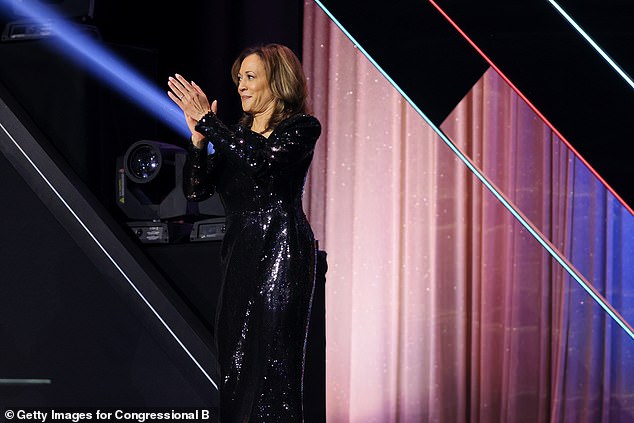Budget Bill's Surprise: Renewed Push For Drug Middleman Reform By Republicans

Table of Contents
The Republican Push for Drug Middleman Reform
The budget bill includes several significant proposals aimed at reforming the practices of Pharmacy Benefit Managers (PBMs). Republicans argue that these changes are vital for lowering prescription drug prices and increasing transparency within the pharmaceutical supply chain. Their rationale centers on the belief that PBMs currently contribute significantly to inflated drug costs, harming consumers and hindering access to essential medications.
- Specific legislative changes proposed: The bill proposes increased transparency regarding PBM rebates and fees, potentially requiring disclosure of all pricing negotiations and the breakdown of drug costs.
- Target areas of PBM practices: The legislation focuses on curbing practices like spread pricing (the difference between what PBMs pay pharmacies and what they charge insurers), excessive DIR fees (Direct and Indirect Remuneration fees imposed on pharmacies), and opaque rebate systems.
- Expected impact on drug prices for consumers: Republicans predict that these reforms will lead to substantial savings for consumers by reducing the hidden costs embedded in the current system. The exact impact is subject to ongoing debate, but proponents point to potential savings passed onto patients through lower co-pays and premiums.
PBMs and Their Role in Inflated Drug Prices
Pharmacy Benefit Managers (PBMs) act as intermediaries between pharmaceutical manufacturers, insurance companies, and pharmacies. While their role is to manage prescription drug benefits, their practices have been increasingly scrutinized for potentially contributing to higher drug costs.
- Definitions of key PBM practices:
- Spread pricing: PBMs negotiate lower prices from pharmacies but charge insurers higher prices, pocketing the difference.
- Rebates: Manufacturers provide rebates to PBMs, but these savings are not always passed on to consumers.
- DIR Fees: These fees are retroactive and unpredictable, adding financial instability for pharmacies and potentially influencing which drugs are stocked.
- Examples of how these practices increase costs: Spread pricing directly increases costs for insurers, which in turn can impact consumer premiums. Opaque rebate systems make it difficult to determine whether the true cost savings from manufacturer rebates are actually benefiting consumers. DIR fees, being unpredictable, may lead pharmacies to prioritize high-profit, brand-name drugs rather than more cost-effective generic options.
- Evidence supporting the claim of inflated prices due to PBM practices: Numerous studies and reports have indicated a strong correlation between PBM practices and increased prescription drug costs. These studies often highlight the lack of transparency and the potential for conflicts of interest within the PBM system.
Potential Impacts of the Proposed Reforms
The proposed Drug Middleman Reform carries both potential benefits and drawbacks. Analyzing the impacts requires considering various stakeholders:
- Potential savings for consumers: The primary goal is to lower out-of-pocket costs for prescription drugs by increasing transparency and reducing the influence of PBM practices on pricing.
- Potential impact on pharmaceutical innovation: Some argue that reduced rebates could decrease funding for pharmaceutical research and development, potentially slowing innovation.
- Potential effects on the competitiveness of the pharmaceutical market: Reform could lead to a more competitive market with fairer pricing, although the specifics are uncertain.
- Potential unintended consequences: Unforeseen consequences could include disruptions to the pharmaceutical supply chain, increased administrative burdens for pharmacies, or shifts in drug availability.
Political Landscape and Future Outlook of Drug Middleman Reform
The political landscape surrounding PBM reform is complex. While Republicans are championing this legislation, the Democrats’ position is less unified. Pharmaceutical companies have diverse opinions, with some supporting aspects of the reform and others expressing concern. Consumer advocacy groups generally favor measures that lower prescription drug prices.
- Chances of the bill passing through Congress: The bill's chances of passage hinge on several factors, including bipartisan support and the willingness of both chambers to compromise.
- Potential for compromise or amendments: Amendments to the proposed bill are likely as negotiations unfold, leading to potentially altered versions that might satisfy different stakeholders.
- Long-term implications for the healthcare system: Successful reform could significantly influence the long-term sustainability of the healthcare system by controlling prescription drug costs.
- Potential for future legislative efforts on this issue: Even if the current bill doesn't pass, the renewed focus on Drug Middleman Reform is likely to fuel future legislative efforts.
Conclusion: The Future of Drug Middleman Reform
The Republicans' surprise push for Drug Middleman Reform within the budget bill represents a significant development in the ongoing struggle to control escalating prescription drug prices. The proposed reforms targeting PBM practices like spread pricing and DIR fees aim to bring greater transparency and potentially lower costs for consumers. However, the potential impacts on pharmaceutical innovation and market competition warrant careful consideration. The ultimate success of these reforms depends on the political will to navigate complex interests and achieve bipartisan support. Stay informed about the developments surrounding this crucial piece of legislation and contact your elected officials to voice your support for effective drug middleman reform. Your voice matters in shaping the future of affordable prescription drug access.

Featured Posts
-
 From Kamala Harris Influencer To Congressional Candidate A Gen Z Story
May 13, 2025
From Kamala Harris Influencer To Congressional Candidate A Gen Z Story
May 13, 2025 -
 Resident Evil Afterlife A Deeper Look At The Fourth Film
May 13, 2025
Resident Evil Afterlife A Deeper Look At The Fourth Film
May 13, 2025 -
 Adrien Brody As Magneto A Case For Casting After His Oscar Win
May 13, 2025
Adrien Brody As Magneto A Case For Casting After His Oscar Win
May 13, 2025 -
 Confirmed James Corden Sir Ian Mc Kellen And Baby Reindeer Star In New Collaboration
May 13, 2025
Confirmed James Corden Sir Ian Mc Kellen And Baby Reindeer Star In New Collaboration
May 13, 2025 -
 Billy Bob Thornton Defends Ali Larter And Angela Norris A Landman Controversy
May 13, 2025
Billy Bob Thornton Defends Ali Larter And Angela Norris A Landman Controversy
May 13, 2025
